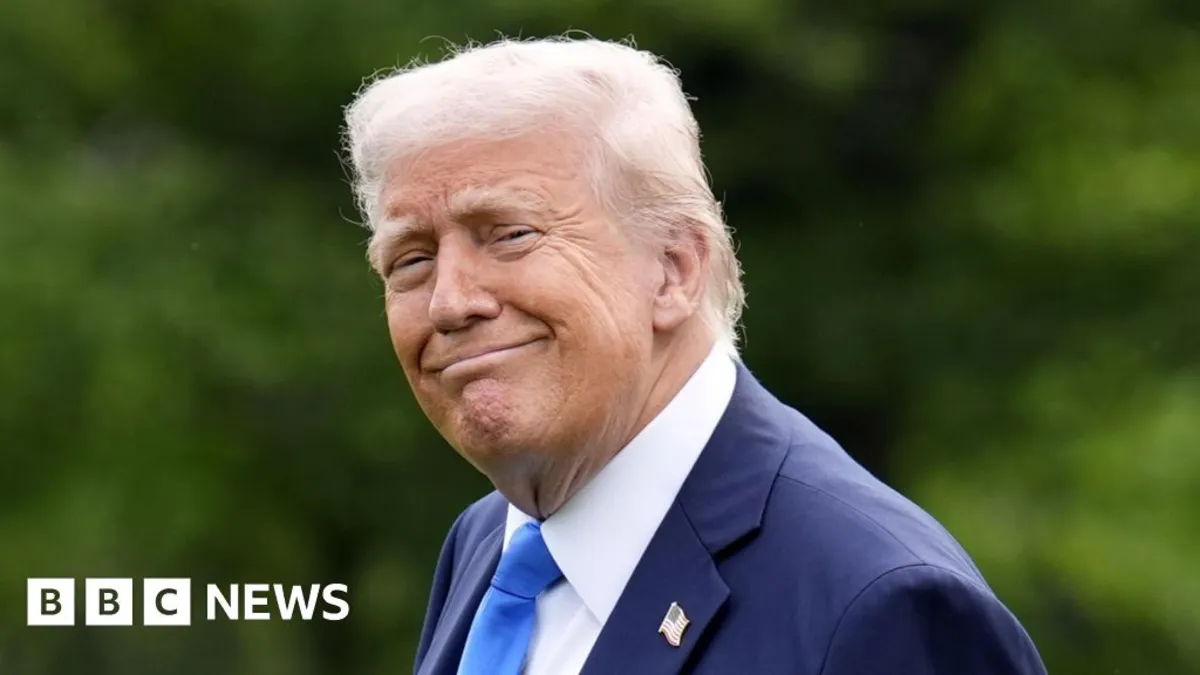
Donald Trump has reiterated his controversial threat to impose a staggering 100% tariff on all films not produced in the United States. During a recent statement, he claimed that the American film industry has been "stolen" by other countries, particularly affecting California. He believes that implementing this tariff will address what he describes as a long-standing issue threatening the vitality of the U.S. film sector.
On Monday, Trump expressed his concerns about the film industry in California, stating it has been "heavily affected" by foreign competition. He emphasized that the proposed levy would serve as a solution to a problem that he claims has persisted for too long. In a prior announcement made in May, Trump mentioned his intention to engage with Hollywood executives to discuss the potential implementation of this tariff, arguing that America's film industry is facing a rapid decline.
Trump's remarks on tariffs come in the wake of a broader announcement last week, where he outlined a series of new tariffs, including a 100% levy on branded or patented drug imports and a 50% tariff on kitchen and bathroom cabinets. On his Truth Social platform, he stated, "Our movie-making business has been stolen from the United States of America by other countries, just like stealing 'candy from a baby.' California, with its weak and incompetent Governor, has been particularly hard hit!"
Trump did not specify when this tariff would take effect, leaving many questions unanswered. The White House has been approached for comments regarding the exact details of the proposal. It remains uncertain whether these tariffs would apply to films available on streaming services like Netflix or only to those shown in cinemas. Additionally, questions have arisen about how the tariffs would be calculated, raising concerns about their practical implementation.
Investment analyst Dan Coatsworth from AJ Bell has raised significant doubts about the feasibility of such a tax. He noted that tariffs are typically applied to goods, and many filmmakers are now opting to shoot in other countries due to more attractive financial incentives. Coatsworth pointed out that the threat of a 100% tariff on foreign films raises more questions than answers, particularly as filmmakers have increasingly turned to international locations for production.
Coatsworth also highlighted the complexities of defining what constitutes an American-made movie. For instance, a film shot in the U.S. could involve foreign actors, directors, or funding, complicating the enforcement of the proposed levy. This ambiguity makes it difficult to understand how the Trump administration intends to implement such a tariff effectively.
Implementing a requirement for films to be produced in the U.S. could potentially lead to increased production costs. Content creators might pass on these costs to consumers, which could negatively impact demand for streaming services and cinema operators. However, it appears that investors currently do not view this tariff threat as a serious concern, as evidenced by the brief dip followed by a rebound in stock prices for major companies like Netflix and Disney.
As the situation develops, the film industry and its stakeholders will be watching closely to see how Trump's tariff proposal evolves and what impact it may have on the future of American cinema.